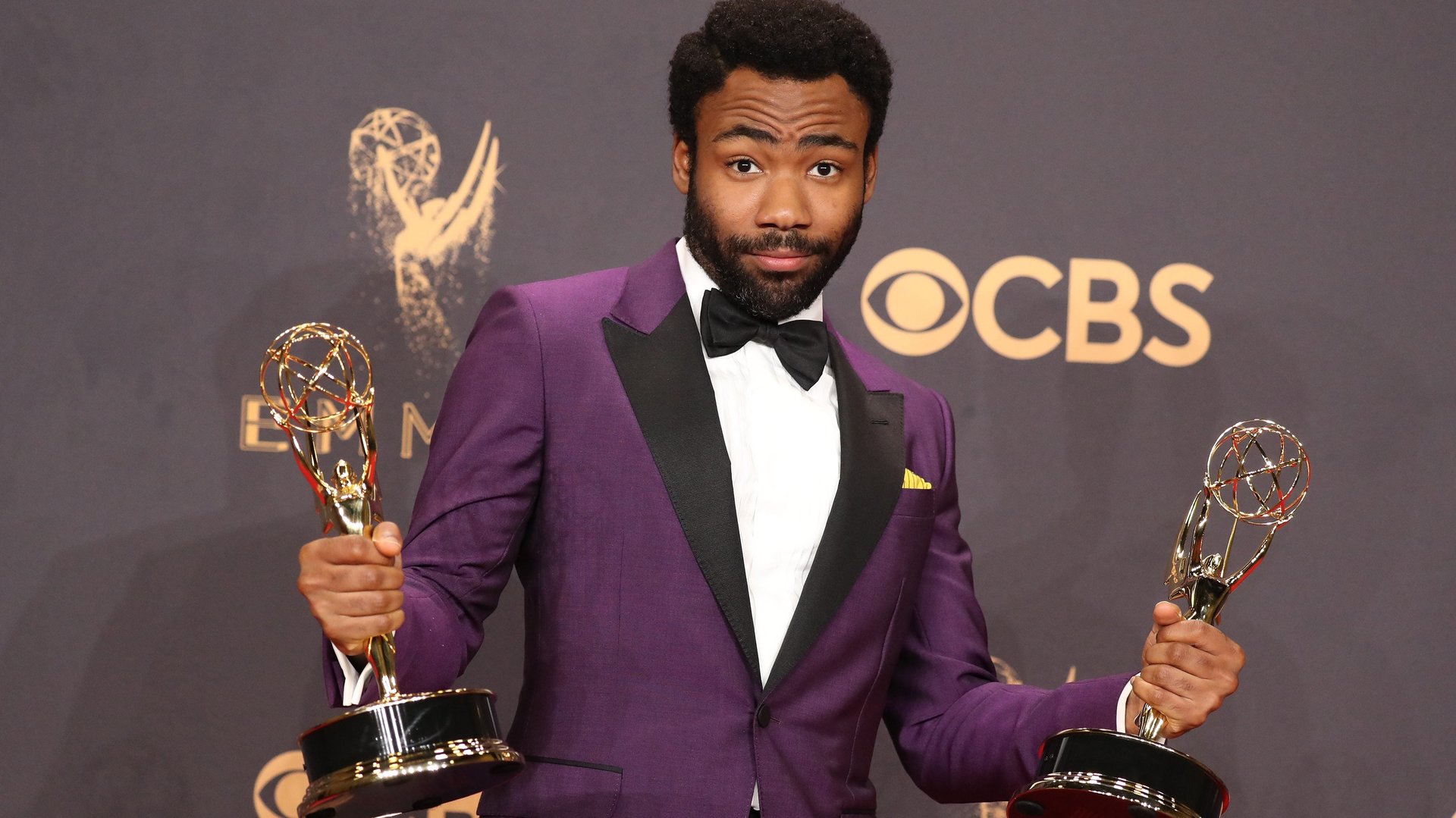Black creators like Donald Glover don’t have the luxury of being mediocre—or humble
Donald Glover, the creator and star of hit FX TV show Atlanta, is somewhat self-absorbed.


Donald Glover, the creator and star of hit FX TV show Atlanta, is somewhat self-absorbed.
In an extensive profile in The New Yorker, Glover described himself as “Jesus” (“I do feel chosen,” he added); when asked if he’s ever been bad at anything in his life, he replied, “To be honest, no. Probably just people”; and when asked if he looked up to anyone, he said he didn’t “see anyone out there who’s better,” then conceded “maybe Elon Musk.”
Glover’s confidence and his sheer honesty about his abilities (or as he puts it, his “superpower”) has been picked up on and picked apart. But Glover’s interview highlights an even more uncomfortable truth in Hollywood: Black creatives not only have to think they are the best—they also have to be the very best.
Diversity is still abysmally low in Hollywood. People of color starred in 13.9% of the lead roles in top-grossing films for 2016, according to a recent report by UCLA—a figure relatively unchanged from the year before. While diversity isn’t brilliant on TV, there has been more significant progress within that genre. In broadcast scripted shows, people of color quadrupled their share of lead roles, from 5.1% during the 2011-12 season to 18.7% in 2015-16; people of color starred in 20% of cable scripted show lead roles in 2015-16 (up from 14.7%), while they accounted for 12.9% of lead roles in digital scripted shows (up from 9.1%).
This jump in diversity is due to a handful of groundbreaking shows, such as ABC’s Black-ish, HBO’s Insecure and Night Of, and of course, FX’s Atlanta. But for these shows, every episode can feel like a make-or-break moment. TV executives and commissioners still often see diversity as a break from the norm and thus a risk. And as diverse shows are seen as risks in and of themselves, there’s less room to experiment and make mistakes. An episode, concept, or character that falls flat with TV audiences can quickly snowball into an argument against character- of-color leads or majority-minority casts. If a black creative writes something that doesn’t widely resonate, it can end up closing the door on stories written by and about people of color. The New Yorker piece highlights this point:
Issa Rae told me that when she co-created and starred in the HBO sitcom “Insecure,” about two black women friends in Los Angeles, she knew that “if it didn’t work I’d have closed a door for a lot of other people. It had to be great.” Even now that “Black-ish” is in its fourth season, Barris wonders if he dares to introduce what on a white show would be a standard device: a black-and-white dream episode. He said, “Every time you do something and it fails, it’s not just an episode of television that didn’t work—you have failed the culture.”
When the stakes are that high, failure isn’t really an option. The stories black creatives produce have to be beautiful, funny, and touching. Nothing short of god-like will do.